Review: 2012 Genesis 5.0 R-Spec
Has any car company ever improved its products at the rate Hyundai has over the past decade? Ten years ago their idea of a flagship was the fusty, faux-wood-and-chrome-encrusted XG350 fitted with a then-new 3.5-liter V6 good for 194 horsepower and EPA ratings of 16 city / 24 highway. The 2006 Azera was a much more credible competitor…for the Toyota Avalon. Even with a new 263-horsepower V6, Hyundai still didn’t pretend to have a luxury sedan fit for driving enthusiasts. For 2012, they do, with the new Genesis 5.0 R-Spec. But, as far as they’ve come, are they there yet?
The Hyundai Genesis has been available with a 4.6-liter V8 since it was introduced as a 2009 model. Reviewers found faults with the car, but I don’t recall the engine’s mere 385 horsepower being among them. Nevertheless, for 2012 Hyundai has a new 429-horsepower (at 6,400 rpm), 376 pound-feet of torque (at 5,000) 5.0-liter V8. In addition to its larger displacement, the 5.0 benefits from direct injection, which permits a bump in the compression ratio from 10.4 to 11.5:1. These specs are impressive. The Hyundai mill outputs more horses than the Porsche Panamera’s 4.8-liter V8, the 5.0-liter V8s in the Lexus IS-F and Mustang GT (unless you pony up for the BOSS), the 5.5-liter V8 being retired from various Mercedes, and the M56’s 5.6-liter V8. The 6.2-liter V8 in the Corvette kicks out a single additional horsepower.
Of course, specs are one thing, subjective impressions another. The Corvette’s LS3 powerplant lacks the refinement needed for luxury sedan duty. The Hyundai engine, in contrast, purrs with the world’s best. Though the idle’s a touch rough when first started, that’s the full extent of the eight’s lapses. Whether loafing about town or revving past 6,000 rpm, this is a very smooth engine. It’s not quiet when exercised, but the tune played by the mechanical bits and exhaust are music to any enthusiast’s ears, yet shouldn’t disturb those who simply want to relax. (In a rare attempt to hear more from the engine I drove the car with the engine cover off, but this made little difference.) When cruising, the engine is virtually silent, even at highway speeds.
For 2012, all three Genesis engines are paired with an eight-speed automatic developed by Hyundai, the first offered by a non-premium brand. The transmission performs well in that it rarely calls attention to itself. I occasionally noticed a less-than-slick downshift when slowing to a stop, a characteristic shared with the ZF eight-speed automatic. Through TrueDelta’s car reliability survey I’ve received a few complaints about such bumps in BMWs, but most drivers will neither notice nor mind. More bothersome: manually downshifting to second for a turn requires a tedious number of taps when you start out in eighth. These manual shifts could also be quicker, but given how the car likes to be driven they aren’t of much use regardless.
It wasn’t long ago that many doubted the benefits of having more than four speeds in an automatic transmission. So what’s the point of going from six to eight? First gear isn’t significantly shorter in the new transmission, but second is much more closely spaced. A shift at the 6,400 rpm power peak (the transmission isn’t always willing to go all the way to the 6,750 rpm redline) that would have dropped the engine to 3,600 rpm with the old six-speed now lands at 4,200. So full-throttle acceleration improves. Seventh is about the same as the old sixth, and the new transmission’s eighth gear is nine percent taller, for better fuel efficiency on the highway. At 80, the engine is only turning 2,000 rpm. Around town it’s often half that, with no sensation of lugging.
The EPA ratings: 16 city, 25 highway—a bit better than the far less capable XG350 of a decade ago. The trip computer reported low twenties in suburban driving and high twenties on the highway. But is it trustworthy? There’s an “eco” mode, but I noticed no difference in efficiency or powertrain behavior with it on.
Of course, luxury sedans aren’t often driven near their full potential. In more typical driving, the Genesis R-Spec impresses with the effortless ease at which it attains any speed. Such effortlessness used to justify the extra tens of thousands of dollars for a V12 over a V8.
The not-so-good not-so-news? The rest of the car. The exterior of the Genesis is easy on the eyes, and people remarked on the quality of the paint. But unlike that of other recent Hyundais, it isn’t in any way distinctive or remotely avant-garde. At NAIAS a couple of years ago I wondered why they had an Infiniti G37 among the NACOTY finalists, only to belatedly realize that the greenhouse (the lower body wasn’t visible) belonged to the Hyundai. Does the overall look draw most from Mercedes, BMW, or Lexus? Hard to say, they’re all in there. The interior is similarly conventional to a fault, and a little dated. The silver-painted buttons of the center stack are easy to understand and operate, but don’t suggest bleeding-edge tech the way the Germans’ much more complex, more highly stylized controls do. The infotainment system’s display washes out easily and often. But the 528-watt 17-speaker Lexicon audio system is the best I’ve experienced aside from the hyper-expensive B&O in the larger Audis. Most puzzling: the R-Spec’s high-mounted seats are unchanged from those in the regular Genesis. So they’re comfortable, but offer little in the way of lateral support. An older mystery: three years on Hyundai still hasn’t figured out how to fit cooling bits to the front passenger seat.
Which is, of course, how most buyers of such cars drive them. What these owners will fault much more than the handling: the ride. The 5.0 R-Spec wafts along some roads, especially blacktop Interstate, with impressive smoothness, silence, and solidity, feeling every bit a premium sedan. But on other roads it tosses about and even quivers to an annoying degree, refusing to settle down and relax. The Acura TL-S I drove the previous week had a considerably more composed chassis, while the cheaper-by-half Ford Focus SE handled bad roads better than either of them.
Of course, you won’t pay nearly as much for the Genesis as you will for one of the name brand luxury sport sedans. At $47,350, the 5.0 R-Spec is only $2,000 more than the 4.6. The factory mods might not work together seamlessly, but Hyundai is charging surprisingly little extra for them. Even an Infiniti M56, which substantially undercuts the Europeans, costs over $20,000 more when similarly equipped.
[Update: The summer tires add another $1,400, but I’d skip them. Not only do they not suit the character of the car, but you can currently pick up a set of four online for $996 plus shipping and installation. So about $300 and a set of all-season tires less than what Hyundai is charging. A further note: the Hyundai media site lists a Genesis 5.0 without the R-Spec chassis, so one is likely coming.]
The Hyundai Genesis 5.0 R-Spec’s 429-horspower engine alone is a tremendous achievement for a company that a decade ago struggled to wring 200 horsepower from a big DOHC V6. Unfortunately, the rest of the car lacks finesse. One must wonder: was the R-Spec a last-minute, low-budget project? Perhaps Hyundai developed the new engine primarily for the Equus, and only realized at the eleventh hour that it might provide the basis for a high-performance Genesis? This would explain the absence of suitable sport buckets and of a well-sorted chassis. Either way, Hyundai has been coming along so quickly that a thoroughly satisfying luxury-performance sedan can’t be far off. For now, we’ve got an outstanding engine in a pretty good car at a price that might well compensate for the current shortcomings. Just test drive extensively before you buy, as your experience will vary depending on the road surface.
Hyundai provided the vehicle, insurance and one tank of gas for this review.
Michael Karesh operates TrueDelta.com, an online provider of car reliability and pricing information..
Michael Karesh lives in West Bloomfield, Michigan, with his wife and three children. In 2003 he received a Ph.D. from the University of Chicago. While in Chicago he worked at the National Opinion Research Center, a leader in the field of survey research. For his doctoral thesis, he spent a year-and-a-half inside an automaker studying how and how well it understood consumers when developing new products. While pursuing the degree he taught consumer behavior and product development at Oakland University. Since 1999, he has contributed auto reviews to Epinions, where he is currently one of two people in charge of the autos section. Since earning the degree he has continued to care for his children (school, gymnastics, tae-kwan-do...) and write reviews for Epinions and, more recently, The Truth About Cars while developing TrueDelta, a vehicle reliability and price comparison site.
More by Michael Karesh
Latest Car Reviews
Read moreLatest Product Reviews
Read moreRecent Comments
- Redapple2 I think I ve been in 100 plants. ~ 20 in Mexico. ~10 Europe. Balance usa. About 1/2 nonunion. I supervised UAW skilled trades guys at GM Powertrain for 6 years. I know the answer.PS- you do know GM products - sales weighted - average about 40% USA-Canada Content.
- Jrhurren Unions and ownership need to work towards the common good together. Shawn Fain is a clown who would love to drive the companies out of business (or offshored) just to claim victory.
- Redapple2 Tadge will be replaced with a girl. Even thought -today- only 13% of engineer -newly granted BS are female. So, a Tadge level job takes ~~ 25 yrs of experience, I d look at % in 2000. I d bet it was lower. Not higher. 10%. (You cannot believe what % of top jobs at gm are women. @ 10%. Jeez.)
- Redapple2 .....styling has moved into [s]exotic car territory[/s] tortured over done origami land. There; I fixed it. C 7 is best looking.
- TheEndlessEnigma Of course they should unionize. US based automotive production component production and auto assembly plants with unionized memberships produce the highest quality products in the automotive sector. Just look at the high quality products produced by GM, Ford and Chrysler!



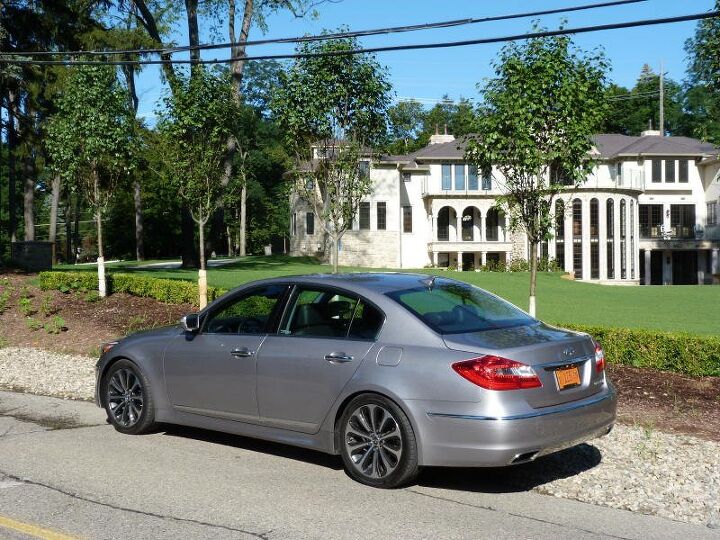
























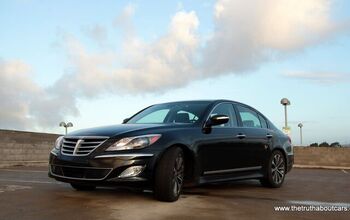
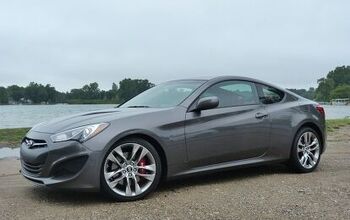
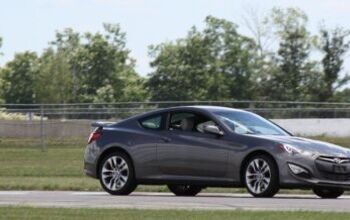
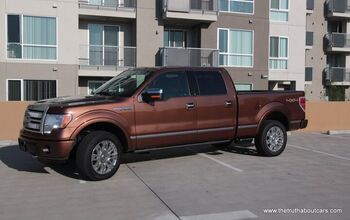
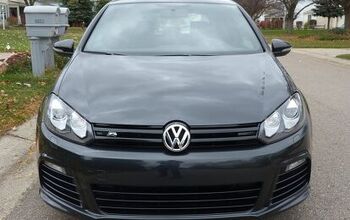




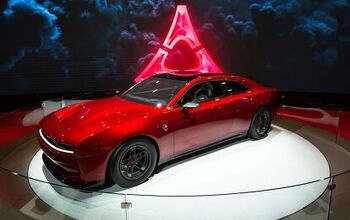





Comments
Join the conversation
This is one of those cars that I really try to like but always come away disappointed. That interior looks like something that would be better off in a 20K Sonata. Lack of interior color or two tone options is not helping the cause. The exterior is equally bland and disjointed. The front is trying so hard to be a Mercedes. The sides and Bangles like butt are BMW of course and the upper portion could be an Infinity. Truly nothing special about the exterior unlike the much more modern looking Sonata and upcoming Azera. The front bumpers have a nice chrome strip in the middle that wraps around to the wheel well and then abruptly stops goes to two plain slab sided doors, drops to the bottoms of the doors in a useless location, then swings back up to another chrome strip in the back bumper. Why? Another oddity- the air conditioned front driver only seat- why not the passenger as in the Kia Optima for nearly half the price? It would seem the best parts of this car are the new V8, right wheel drive(lack of AWD is not good though) and driving dynamics. A refresh is needed for this car.
I'm disappointed to read about the same problems with the new Rspec Genesis, as exist with our 2009 model. The suspension on the 2009's were underdamped. The suspension can get quite excited over some road surfaces and even start porpoising on wavy highways. Hyundai made a 2009 running change and another change in 2010 that improved the situation. The other problem, and Hyundai isn't the only company that screws this up, is the overactive stability control. Turning it off, helps a lot (but doesn't turn it off completely.) Some owners go as far as to pull the fuse. It is a little disconcerting when you apply throttle only to have the engine die because the stability control senses the slightest slip. It is REALLY disconcerting when this happens when you pull out in front of someone and you are a sitting duck...waiting for the engine to wake back up again. Having said that, we really the car, exterior and interior. The interior is refined, not pretentious...similar to a Scandinavian design (think Volvo.) The exterior still draws stares and thumbs up. A few times a year we get questioned at a gas station on what it is, and astonishment that it is a Hyundai (rebadged with Korean Genesis logos.) In 2 years and 20K miles we've not had a single service issue.